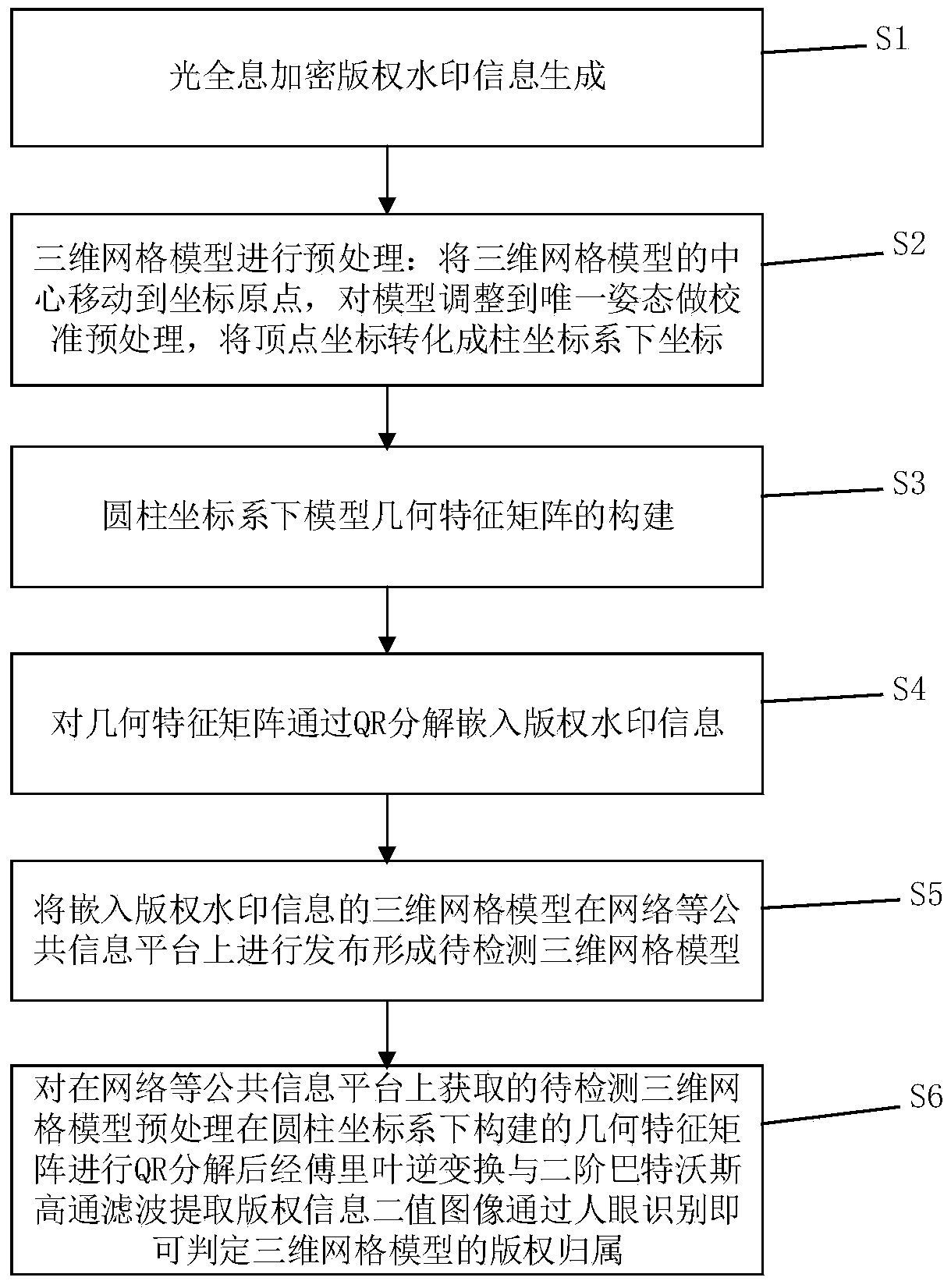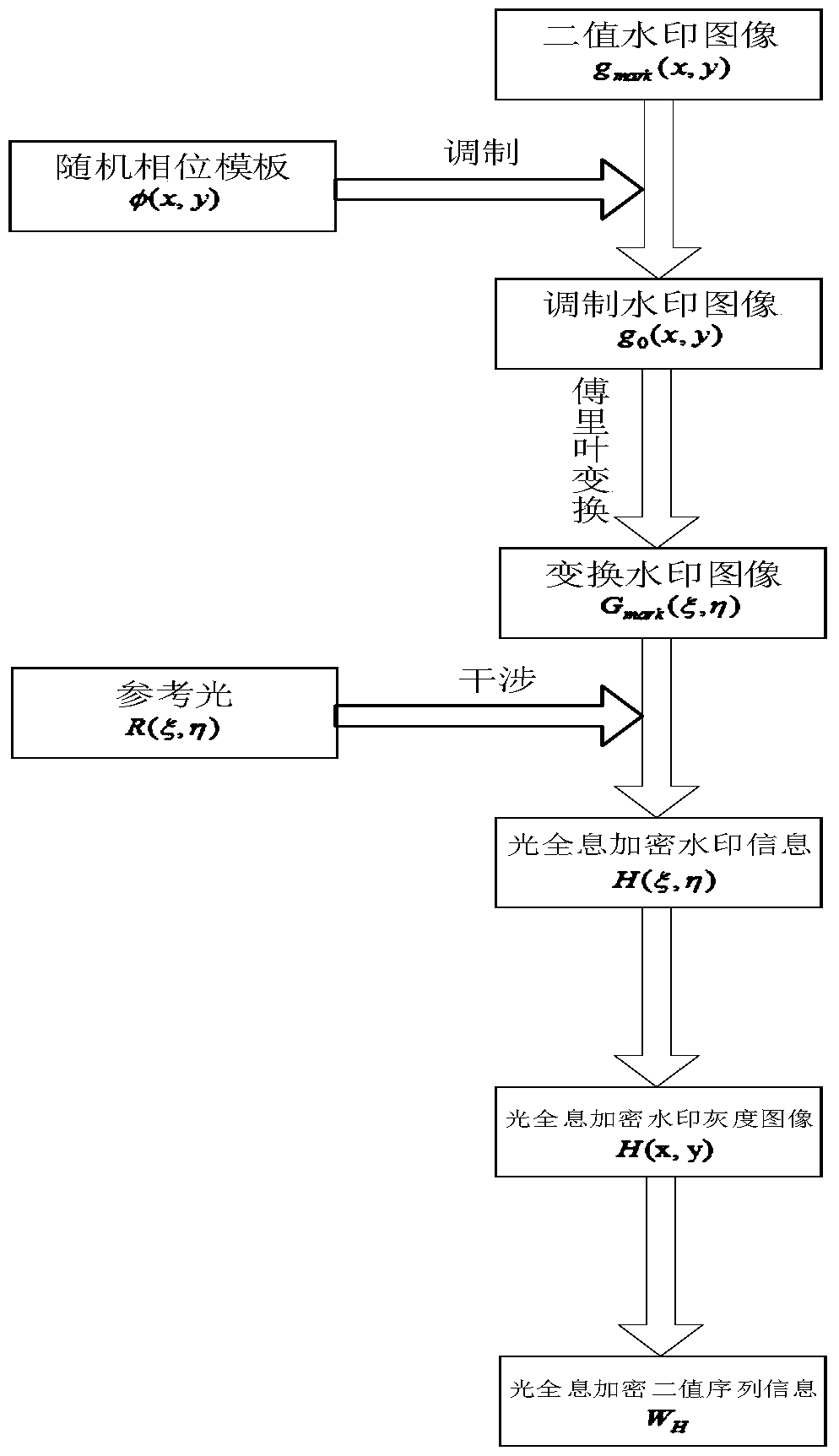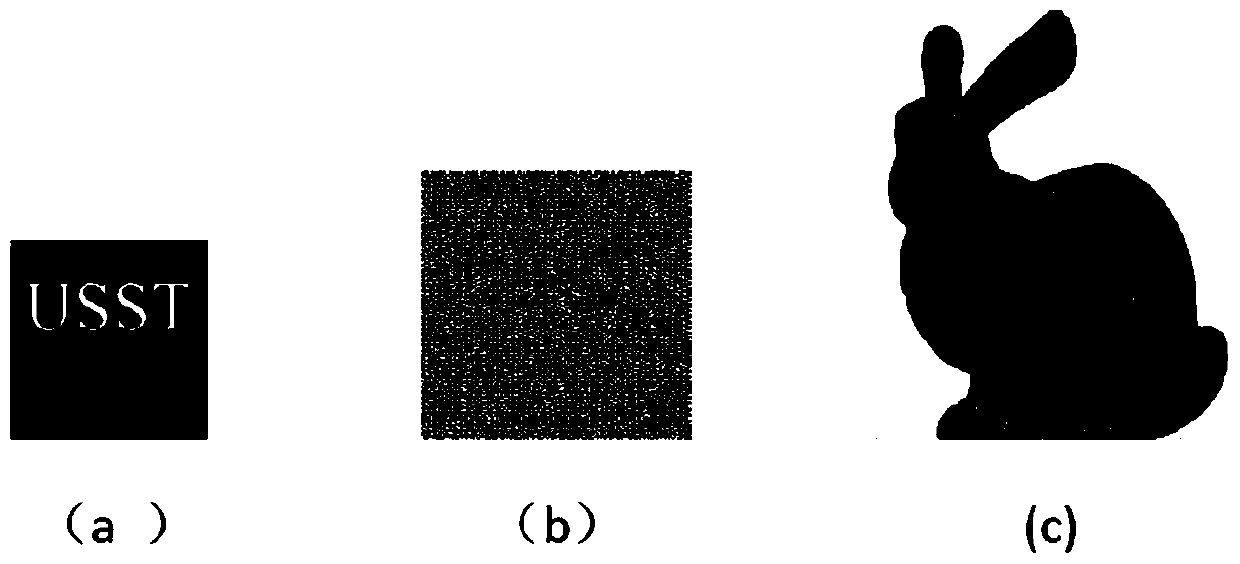A 3D grid model copyright authentication method
A three-dimensional grid and copyright authentication technology, applied in the three-dimensional field, can solve the problems of inability to perform accurate anti-counterfeiting authentication by decryption and imitation, low linear complexity of pseudo-random sequences, and difficulty in realizing direct frequency domain decomposition of three-dimensional models.
- Summary
- Abstract
- Description
- Claims
- Application Information
AI Technical Summary
Problems solved by technology
Method used
Image
Examples
Embodiment Construction
[0079] The present invention will be further described below in conjunction with drawings and embodiments. The following examples are used to illustrate the present invention, but are not intended to limit the scope of the present invention.
[0080] The basic idea of the present invention is to use optical holographic technology to encrypt copyright information, use QR decomposition to embed and extract copyright watermark information on the geometric feature matrix of the model in the cylindrical coordinate system, and realize the copyright authentication of the three-dimensional model.
[0081] Using Matlab2013 as the experimental platform, a 3D model watermarking prototype system is realized. Using the 3D model Stanford Bunny provided by http: / / www.cc.gatech.edu / projects / large_models / including 35947 vertices and 69451 triangular faces as an example 3D model to verify the effectiveness of the 3D grid model copyright authentication method .
[0082] Execute as figure 1...
PUM
 Login to View More
Login to View More Abstract
Description
Claims
Application Information
 Login to View More
Login to View More - R&D
- Intellectual Property
- Life Sciences
- Materials
- Tech Scout
- Unparalleled Data Quality
- Higher Quality Content
- 60% Fewer Hallucinations
Browse by: Latest US Patents, China's latest patents, Technical Efficacy Thesaurus, Application Domain, Technology Topic, Popular Technical Reports.
© 2025 PatSnap. All rights reserved.Legal|Privacy policy|Modern Slavery Act Transparency Statement|Sitemap|About US| Contact US: help@patsnap.com



